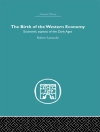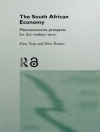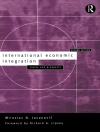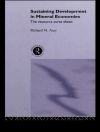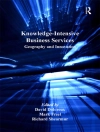Modern society is currently facing a cascade of environmental crises. Moving forward, it will be the job of current and future generations to develop sound and creative approaches to addressing them. This book attempts to provide insight into the ways in which society can confront modern agricultural, environmental, and resource challenges. In particular, it provides an economic lens with which to examine and confront these issues. The first part of the book introduces a general economic framework that can be used to analyze these issues. Subsequent chapters rely on this framework to introduce and explain specific concepts in agricultural, environmental, and resource economics, including (but not limited to) non-renewable and renewable resource management, pesticide use, and climate change. The book develops quantitative tools that the readership can use to analyze and better understand the complexities of these challenges. Each chapter includes specific applications, and an accompanying Appendix includes a longer list of practice problems that can be brought into courses as exercises.
Resources are available to instructors who adopt this book.
Contents:
- Preface
- About the Authors
- What is Economics?
- Markets and Welfare
- Externalities and Policy
- Pollution Control under Heterogeneity
- Property Rights and Political Economy
- Introduction to Public Goods
- Advanced Applications of Public Goods
- Technological Change and Pollution Control
- Valuation of Environmental Benefits
- Natural Resource Economics
- Non-Renewable Resources
- Renewable Resources and Fisheries
- Forests
- Economics of Water
- Introduction to Issues in Environmental Economics
- The Economics of Pest Control
- Economic Development and Climate Change
- Biodiversity, Biotechnology, and Intellectual Property Rights
- Environmental Services
- Introduction to Supply Chains
- Sustainable Development and the Bioeconomy
- Political Economy and Behavioral Considerations
- Appendix: Additional Practice Exercises
- Index
Readership: Advanced undergraduate and master’s degree students, as well as practitioners in the fields of environmental science and environmental economics. Those taking general microeconomics courses, environmental and resource economics courses, or other more specialized environmentally-themed courses. Environmental policymakers in research institutions, like Resources for the Future, Nature Conservancy, and the Environmental Protection Agency in the US, and parallel institutions abroad.
Key Features:
- This book is essential for readers interested in the applications of economic tools to critically important public policy issues and social decision making
- Advanced undergraduate and master’s degree students will specifically benefit from the rigorous methods, and practitioners in the fields of environmental science and environmental economics will see direct relationships between discussions of important issues and their fields of work
- The book can be used in a general microeconomics course, environmental and resource economics courses, or other more specialized environmentally-focused courses
- The book has unique material on issues of innovation, supply chain, the bioeconomy, pest-control, and the intersection of the environment with the modern economy


